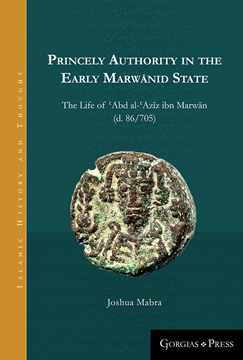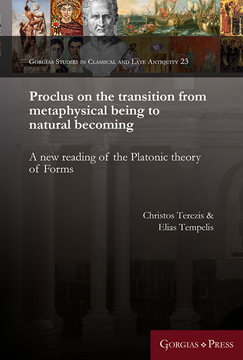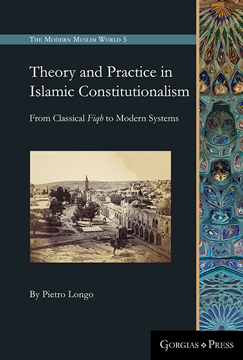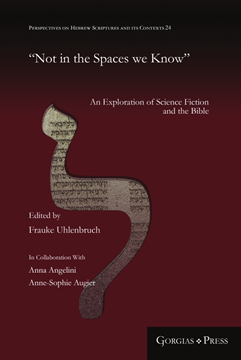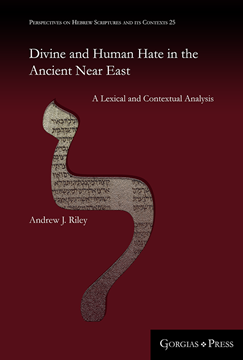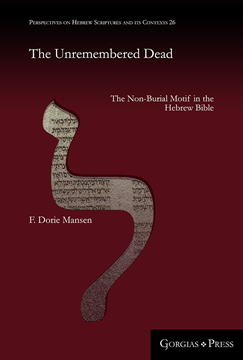Princely Authority in the Early Marwānid State
The Life of ʿAbd al-ʿAzīz ibn Marwān
By Joshua Mabra
Series: Islamic History and Thought 2
ISBN: 978-1-4632-0632-1
‘Abd al-‘Azīz b. Marwān (d. 86/705) reigned as the amīr of Egypt and walī al-‘ahd (heir apparent) to the Islamic caliphate for over 20 years. This book intends to revive this largely forgotten amīr and demonstrate the critical role he played in the formation of the Marwānid dynasty. The founding thesis of this study is that ‘Abd al-‘Azīz was appointed the amīr of Egypt and second heir apparent due to the legitimacy his maternal lineage brought the nascent dynasty.
$140.00 (USD) $84.00 (USD)
Proclus on the transition from metaphysical being to natural becoming
A new reading of the Platonic theory of Forms
ISBN: 978-1-4632-0692-5
This volume examines the historical end of the Platonic tradition in relation to creation theories of the natural world through Neoplatonist philosopher Proclus (412-485) elaboration of an investigation of Plato’s theory of metaphysical archetypal Forms.
$127.00 (USD) $76.20 (USD)
Theory and Practice in Islamic Constitutionalism
From Classical Fiqh to Modern Systems
By Pietro Longo
Series: The Modern Muslim World 5
ISBN: 978-1-4632-0693-2
This groundbreaking study investigates theories of Islamic constitutionalism as expressed and implemented throughout the history of Islam. To achieve this, it first traces the roots of caliphate embedded within the seminal legal and political works of classical and modern Muslim thinkers. In its concluding chapters, the study maps out and discusses the subsequent transition of Islamic and Muslim governance into twentieth-century approaches to constitutionalism. Longo's resourceful and meticulous approach sheds new light on constitutionalism within the contemporary Muslim world and how it continues to be informed by, or departs from classical theories of Islamic and Muslim governance.
$118.00 (USD) $70.80 (USD)
"Not in the Spaces we Know"
An Exploration of Science Fiction and the Bible
ISBN: 978-1-4632-0694-9
This volume explores themes at the intersection of the Bible and science fiction. In the genre of science fiction in film, books, comic books, or fan fiction, we find portrayals of possible futures, altered pasts, supernatural or beyond-human beings. Just as in biblical literature, science fiction can contain metaphysical speculation. Departing from this intersection, the authors engage with biblical texts 'as' science fiction, asking different questions of their sources: can science fiction theory and practice yield new approaches to the discussion of biblical texts? The authors reflect on methodology and offer case studies that include, among others, superhuman biblical kings and uncanny divine intermediaries.
$117.00 (USD) $70.20 (USD)
Divine and Human Hate in the Ancient Near East
A Lexical and Contextual Analysis
ISBN: 978-1-4632-0695-6
Divine and Human Hate in the Ancient Near East studies lexemes for ‘hate’ in Biblical Hebrew, Ugaritic, and Akkadian. Riley conducts a lexical study of three ‘hate’ terms, along with comparative analysis of divine and human hate in biblical, Ugaritic, and Mesopotamian literature.
$123.00 (USD) $73.80 (USD)
The Unremembered Dead
The Non-Burial Motif in the Hebrew Bible
ISBN: 978-1-4632-0696-3
The Unremembered Dead examines the motif of non-burial in the Hebrew Bible in its ancient Near Eastern contexts. Mansen proposes a new typology for analyzing these references, and demonstrates the range of functions that the non-burial motif served as a literary weapon in both biblical and extra-biblical texts.
$145.20 (USD) $87.12 (USD)
